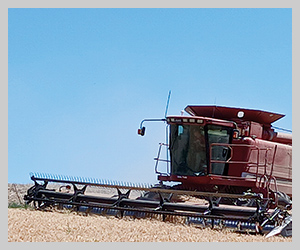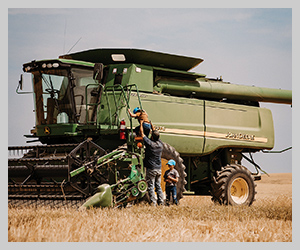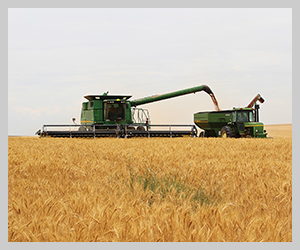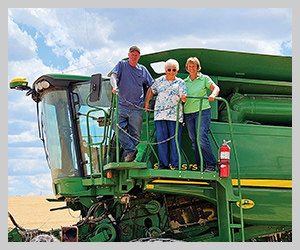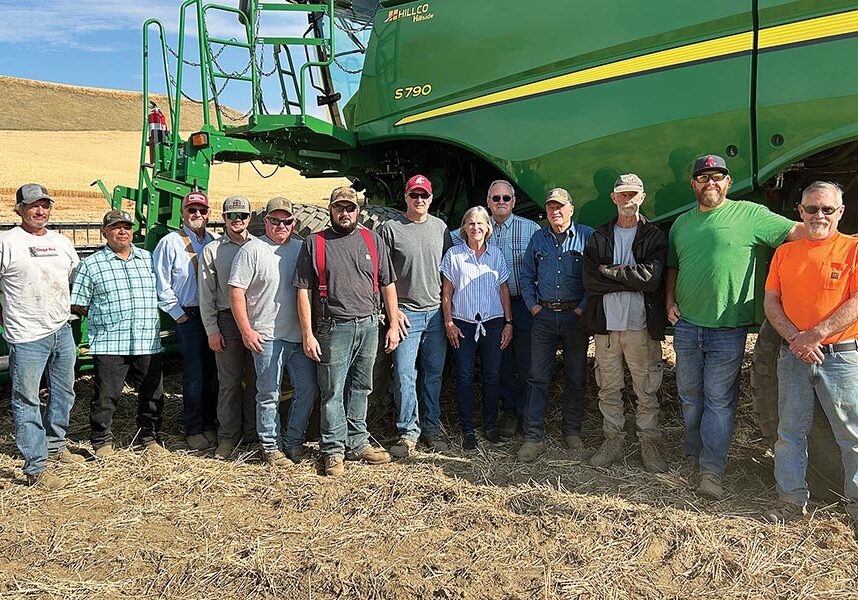
Scott Ford and his parents, Allen and Cheryl Ford, are the fifth and sixth generations to farm their family’s ground north of Walla Walla that was established right at the turn of the 20th century. They are 100% no-till and grow mostly winter wheat.
“We’ve done some spring crops over the years, but not too much in the last 10 years because of the unpredictability of the rainfall,” Scott explained, adding they farm in a 14-16-inch precipitation zone. “We’ve experimented with canola and, way back, with some dryland alfalfa. We’re not opposed to growing other things, it’s just finding something that’s profitable and consistent.”
Scott said he always wanted to come back to the farm, but his father “encouraged” him to try something else first. Scott graduated from Washington State University with a teaching degree and spent five years in the Walla Walla public schools before returning to the family farm in 2008. Allen followed a similar path himself. He got a diesel mechanic’s degree and worked for a Caterpillar dealer for six years because the family’s farm wasn’t big enough to support his grandparents, parents, and himself. He returned to the farm in 1980 when the family acquired more land.
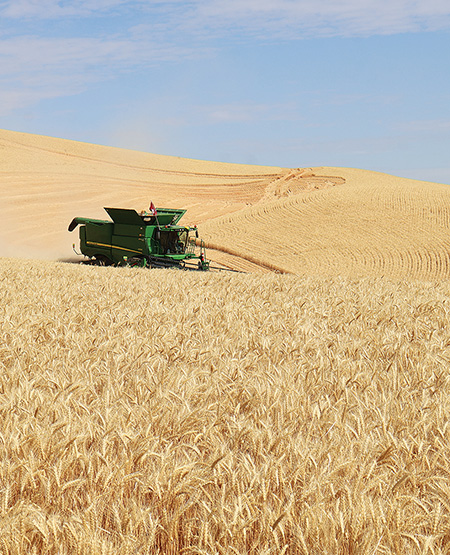
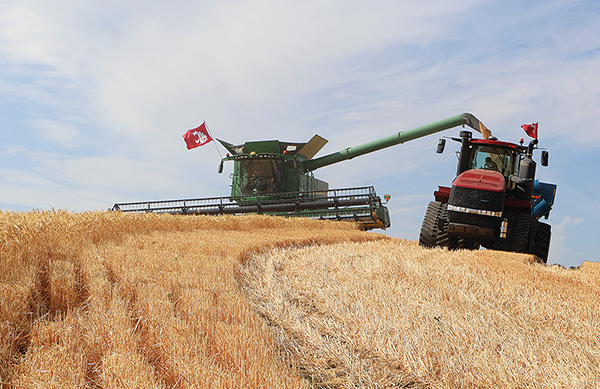
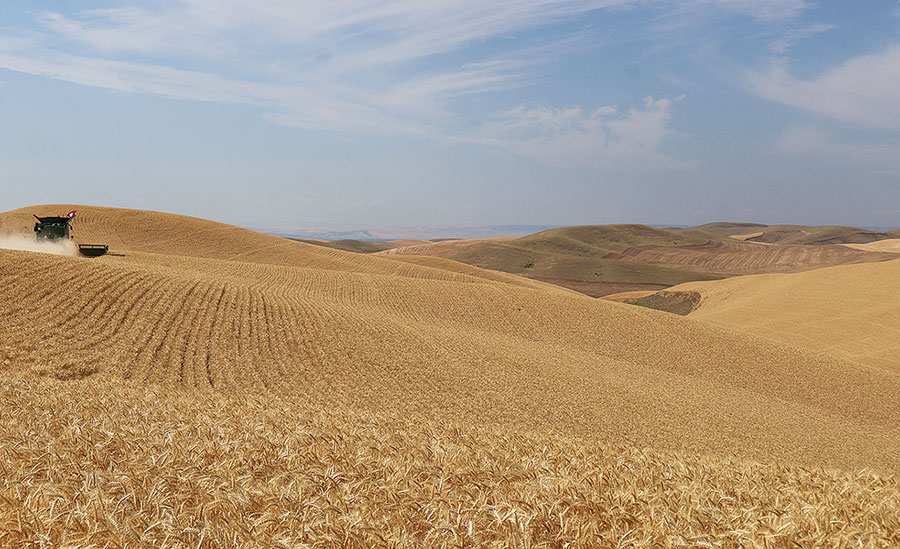
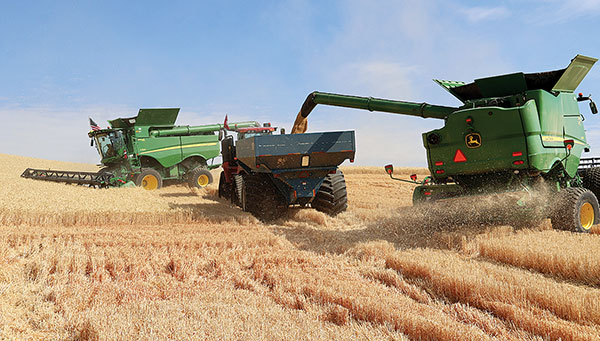
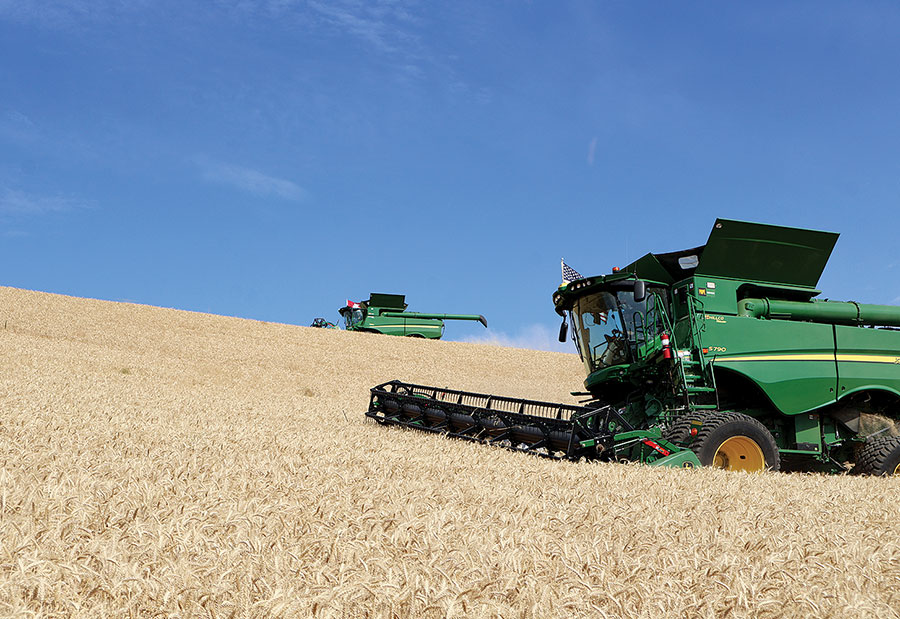
“I saw a lot of friends who grew up on farms and did nothing else,” Allen said. “Farming has advantages and disadvantages. If you broaden your horizon and get a bigger scope on things, it’s a lot easier to weather those disadvantages. You have something to compare it to.”
“My father always said (working off the farm) was a really good experience, and it was good to go work for someone else and do something else. He was a 110% right,” Scott added.
Reflecting on his farming career, Allen said one of the biggest changes he’s seen is the dramatic reduction in erosion in the past 20 years as farmers began implementing more no-till practices.
“I can’t fault farmers; they were doing the best they could with the equipment and varieties they had at the time. I really feel we are to a point now that we are not losing our topsoil,” he said. “The farm is a resource that my family has been involved in for six generations. It’s a love of mine, and I’m glad to see it pass on.”
While Scott and Allen might be the ones running the machines, Scott said it’s his mother, Cheryl, who really keeps things on track.
“She’s pretty vital on the farm, maybe behind the scenes, but she’s played a big role, from making lunches to running parts to paying bills, all the little things that people don’t think about that have to get done,” he said. “She might actually be the glue that keeps it all together.”
The rest of the family includes Scott’s two teenage daughters, as well as four full-time employees and an expanded harvest crew. The Fords take their wheat to Northwest Grain Growers either in Prescott, Wash., or to the Sheffler elevator on the Snake River. Most of the family’s wheat is sent downriver on barges. Scott calls the river system “essential,” not only to his family’s operation but to everyone who lives in the Pacific Northwest, farmers or not.
“There’s a lot of goods that are moved up and down on this river, and even if you aren’t using those goods, that’s trucks we aren’t putting on the road. That would affect everyone in the Pacific Northwest,” he said.




